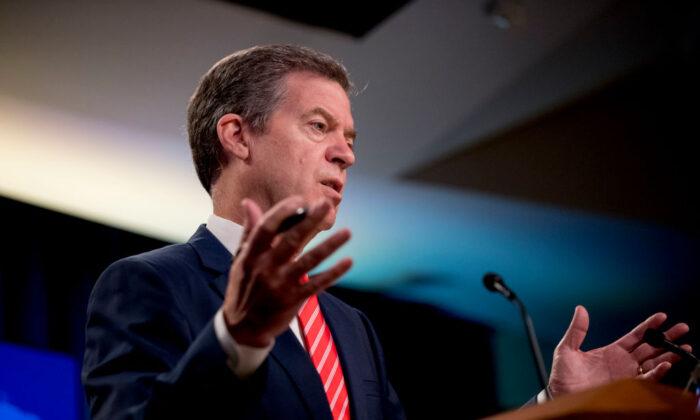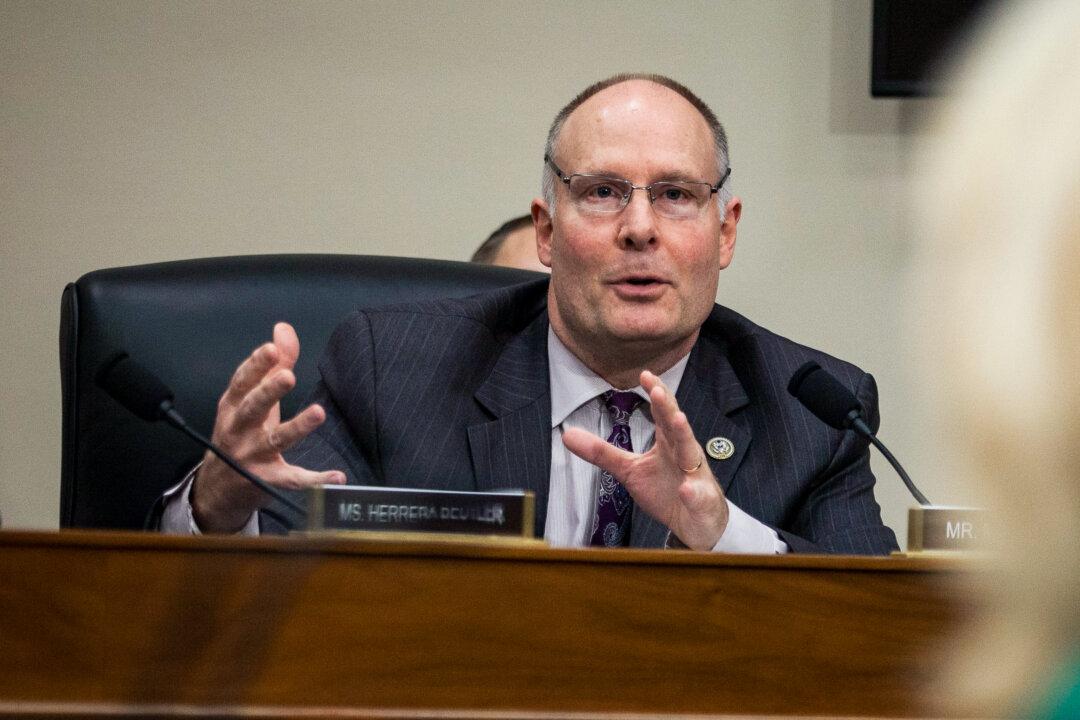U.S. ambassador for international religious freedom Sam Brownback renewed his call for Beijing to end its “war on faith” on Nov. 17, including the persecution of adherents of Falun Gong.
“I think in particular what China is doing is absolutely wrong. It’s one of the worst religious persecution situations in the world today, if not the worst,” Brownback
said, in response to a reporter’s question at a special briefing for the inaugural Ministers’ Forum of the International Religious Freedom or Belief Alliance (IRF Alliance).
Begun in February, the IRF Alliance seeks to promote religious freedom and combat persecution based on religion or belief. It currently has
31 member nations, including the United Kingdom, the Netherlands, Australia, Senegal, and Ukraine.
“We continue to call on China to stop their war on faith ... against the Uyghurs, against the Tibetan Buddhists, against the Christian house church, against the Catholic Church, [and] against Falun Gong,” Brownback said.
Also on Nov. 17, Secretary of State Mike Pompeo expressed his concern about China’s religious persecution on Twitter.
“The Chinese Communist Party’s war on faith targets Christians, Muslims, Buddhists, and Falun Gong devotees alike. The Party spares no one,” Pompeo wrote.
Falun Gong, also known as Falun Dafa, is a spiritual practice with meditative exercises and moral teachings based on truthfulness, compassion, and tolerance. According to official estimates, there were 70 million to 100 million adherents before the Chinese regime banned it in 1999.
The practice’s popularity drew the ire of former Chinese regime leader Jiang Zemin, who viewed it as a threat to both his rule and the Communist Party’s ideologies. In July 1999, Jiang launched a nationwide persecution to arrest and detain Falun Gong adherents.
According to the Falun Dafa Information Center, millions have been detained inside prisons, labor camps, and other facilities, with hundreds of thousands tortured while incarcerated. There are more than 4,000 documented deaths as a result of persecution, according to Minghui.org, a U.S.-based website that tracks the persecution—though experts say the true figure is likely much higher.
The persecution has continued amid the pandemic.
More than 1,000 were either arrested and harassed by the police in October alone, with 65 adherents sentenced to jail.
At the forum, the 31 members discussed their opposition to governments’ “unlawful employment of technology to monitor the actions of individuals solely due to their religion or belief and repress entire religious communities,” they said in a
joint statement.
Brownback specially called out China’s use of technology in its war on faith.
“This is something they’ve done in Tibet, they are doing in Xinjiang, and rolling out in different places in their country. And we want to stop this from spreading to other countries around the world or spreading more to other countries around the world,” he said.
In October 2019, the Commerce Department
blacklisted 28 Chinese police bureaus and companies, including surveillance equipment manufacturer Hikvision, over their roles in supporting Beijing’s repression and surveillance of Uyghur Muslims in China’s far-western region of Xinjiang. An estimated 1 million Uyghurs are currently detained inside internment camps there.






Friends Read Free